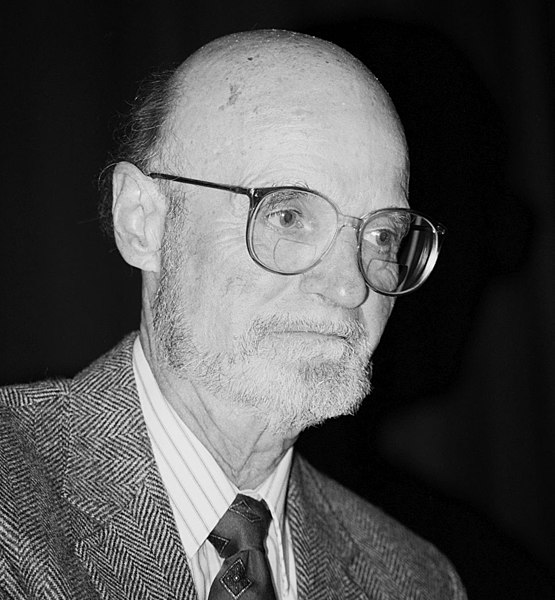John Simmons Barth was an American writer best known for his postmodern and metafictional fiction. His most highly regarded and influential works were published in the 1960s, and include The Sot-Weed Factor, a whimsical retelling of Maryland's colonial history; Giles Goat-Boy, a satirical fantasy in which a university is a microcosm of the Cold War world; and Lost in the Funhouse, a self-referential and experimental collection of short stories. He was co-recipient of the National Book Award in 1973 for his episodic novel Chimera.
Barth in 1995
Postmodern literature is a form of literature that is characterized by the use of metafiction, unreliable narration, self-reflexivity, intertextuality, and which often thematizes both historical and political issues. This style of experimental literature emerged strongly in the United States in the 1960s through the writings of authors such as Kurt Vonnegut, Thomas Pynchon, William Gaddis, Philip K. Dick, Kathy Acker, and John Barth. Postmodernists often challenge authorities, which has been seen as a symptom of the fact that this style of literature first emerged in the context of political tendencies in the 1960s. This inspiration is, among other things, seen through how postmodern literature is highly self-reflexive about the political issues it speaks to.
American author and publisher Dave Eggers is one of several contemporary authors who represent the latest movement in post-modern literature which some have deemed post-postmodernism or post-irony.


